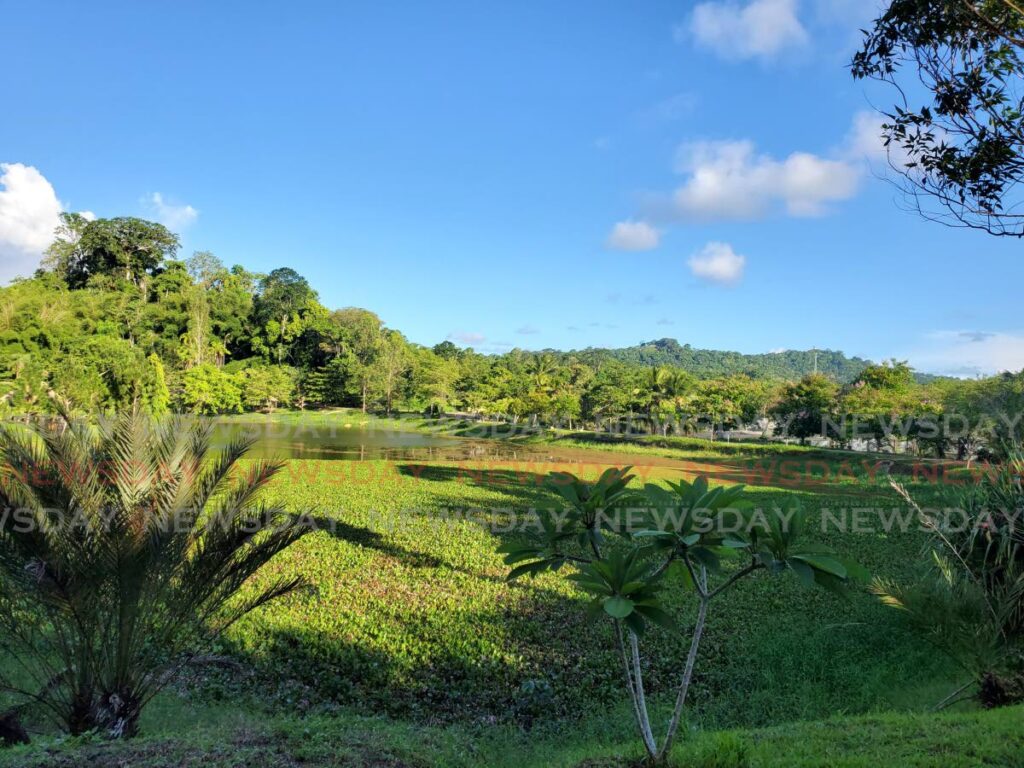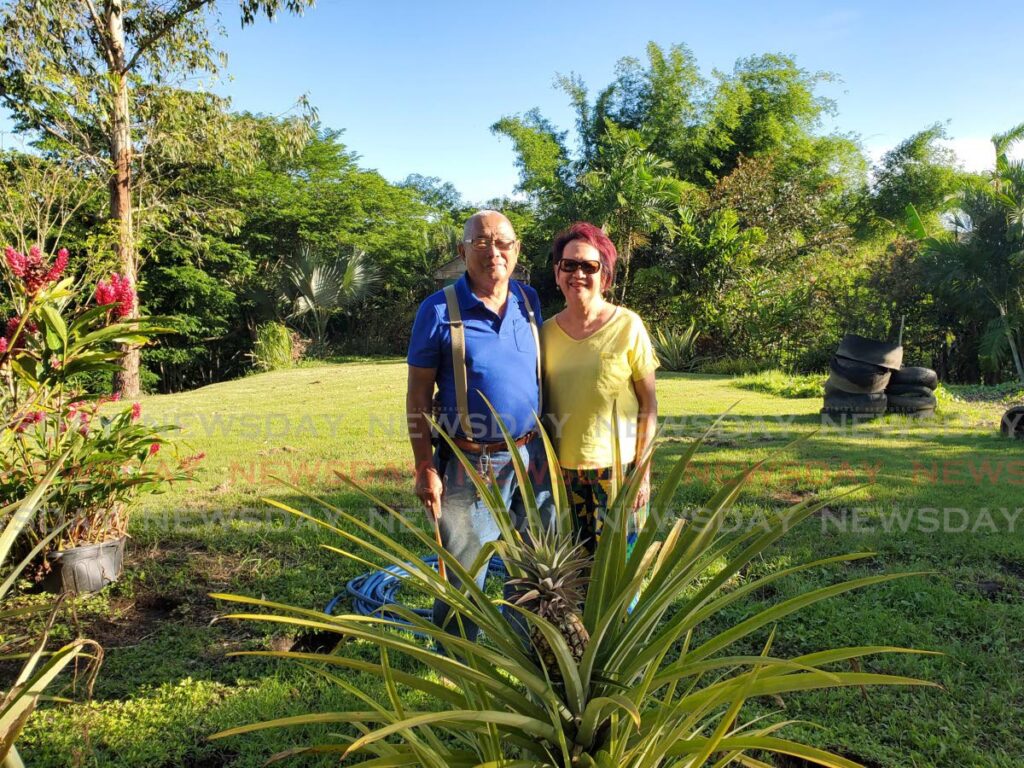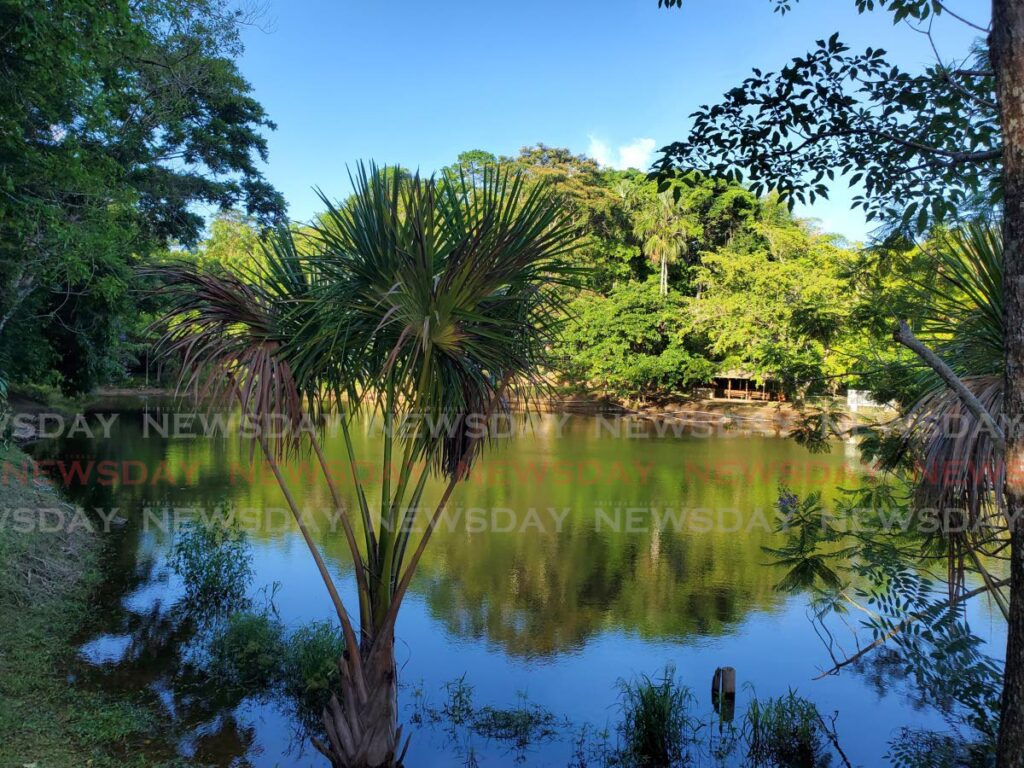Let's go to La Vega, Trinidad's best kept secret

La Vega Estate is well-known locally, but owners of the estate Bertram Bert Manhin and Pat Manhin said business has been down, especially post-pandemic, mainly because of the distance. Though the estate is opened to the public during the weekends and on public holidays, the couple is hoping people put aside their fears of long distances and seek serenity in their nature reserve.
The Manhins bought the estate almost 40 years ago.
The offer of plants for sale and the introduction of many fruits, that are labelled as local fruits, were because of Bert’s hobby that he said went overboard.
Before becoming an avid plant collector and now owner of a nature reserve, Manhin represented TT as a marksman.
While giving Business Day the history of the La Vega Estate at his home there in Gran Couva, he said, “I had a smaller estate in Arima and I just found it was too far to get to Arima, so I was looking for something a little nearer and then a friend told me about here.”
He said he eventually came, saw the place and assumed a mortgage from the Agricultural Development Bank, so he did not have to incur the full price.
“After that we started with a few different things like trying vegetables, we didn’t really have anything in mind and that didn’t particularly work out. But we also have a piece of land in San Fernando, so we opened a little garden shop there – which is still there – and we sort of went into ornamentals.”
The German experience
From ornamentals, Manhin delved into the exportation of tropical cut flowers, but he said that did not work out too well. He explained that in 1986, the couple traveled to countries like Germany, the Netherlands, Italy, the US, the UK and Canada promoting those flowers, but it only peaked when airlines flew directly to these countries’ capitals.
“But on the whole, it’s not an easy business because a lot of times, the people over there, they don’t buy the flowers, you have to send it to them and they will sell it for you. I remember once I was saying, ‘Look at these nice price we are getting,’ and then a couple months after, I got a statement and I saw a figure, but no cheque. So I called the guy and told him there is no cheque, he said, ‘Look at it carefully, you owe us that because we had to salvage the flowers,” said Manhin.

He added that there was the problem of payments because some establishments went out of business before paying the Manhins or just did not pay them.
“Although we got a court order for him to pay, the German people didn’t enforce it because he was from East Germany and they were sympathetic. But later on he told people to buy from the Caribbean because they would not have to pay.”
Then in 1988, the Manhins decided to build the large green house which is now the Garden Centre of the estate.
His wife added, “Then he started collecting, he’s a plant collector. He started traveling all over the world and a lot of plants that people now think came from Trinidad, he in fact, introduced a lot of them to Trinidad.”
Some of those trees include the jumbo doungs – these go by many other names such as dounce, dungs, dunk, red date, Korean date and jujube – dwarf pommecythere, dragon fruit, rambutan, Thai mangoes, sweet carambola also known as star fruit and five finger fruit among many others.
Manhin said, “We had brought some sweet ones (sweet carambola) from Taiwan and we planted all the seeds and from those we had about 200 trees and we did a selection and we found that only three of those trees were worthwhile because they were sweet. We grafted from those trees and that is how you have sweet carambola all over Trinidad now.”
As for the dwarf pommecytheres, his wife said it’s all over the place now, but it’s because he brought it into the country.
Manhin added, “We used to get permits to bring in seeds long ago and well now, they are a little fussier and you may or may not get a permit, but this is how it is and we do our best to try to see what we can do.”
To get these plants to the standard they are now, the Manhins said there was a lot of trial and error.
His wife said, “A lot of it he had to supervise himself and really it is trial and error because it’s things we’ve never had before and it was a lot of work. But it’s the love and the passion that sees it through.”
Where faith leads them
Manhin’s wife said during the three years lockdown period, a lot of plants had to just overgrow because of labour cost and no income during that time. The estate is also not government-funded, so only what could have been done was done during that time.
She said, “We did have to pay a few people, but we had to keep it bare minimum because it didn’t make sense."
Manhin said at the estate, they have incorporated sections such as the Nature Park, the Lousade Pond, Lake George, the Garden Centre and La Vega Two pools which was opened in December 2015.
He said at Lake George, people are free to rent rods and go fishing there as it is the largest pond at the estate.

Manhin’s wife said the ponds were originally for irrigation – a practice of applying controlled amounts of water to crops.
At the Garden Centre, the Manhins try to keep a lot of fruit trees especially the ones that are rarely seen such as the various types of dragon fruits – pink dragon fruit with pink flesh, pink dragon fruit with white flesh and yellow dragon fruit with yellow flesh – and jumbo doungs trees around Corpus Christi because those are what sells best.
Corpus Christi is a holiday that falls two Thursdays after Pentecost, or the Thursday immediately after Trinity Sunday when Roman Catholics observe the Trinity – the unity of the Father, Son and the Holy Spirit. Corpus Christi also coincides with the start of the rainy season and is considered the best day for planting. People would mainly plant pigeon peas and corn and it is believed that the crops will be plentiful.
So far, Manhin’s wife said they have not seen many shoppers coming by, but said it usually picks up once it starts raining.
She added, “Because people have not been buying much, we have put on a 20 per cent off sale on fruit trees for Tuesday, Wednesday and Thursday to encourage people to drive out here. First to begin, Port of Spain people don’t like to cross the Caroni, but when they come here, they love it.”
She said many companies rent large spaces to have their functions for their employees.
Future plans
Manhin’s wife said they are going to continue building their plant production because her husband is always introducing and looking for new plants.
“That won’t stop until he passes,” she said.
She added that they will also be upgrading the leisure side of the estate and put more huts for people to relax and have a place for their belongings and just try to do more installations to draw more people in and make them feel at peace.
She said, “People really find here to be quite a sanctuary. A lot of people say this is the best kept secret in Trinidad.”


Comments
"Let’s go to La Vega, Trinidad’s best kept secret"